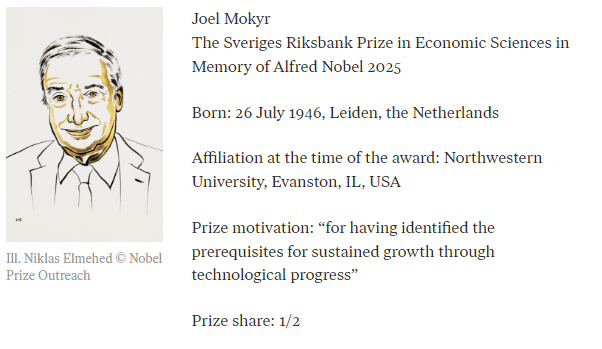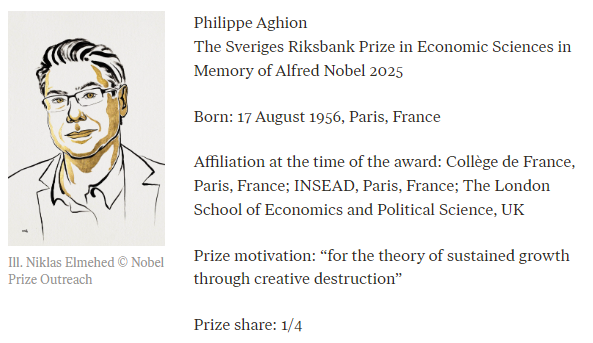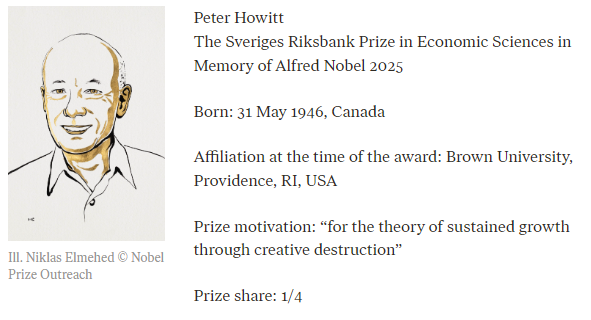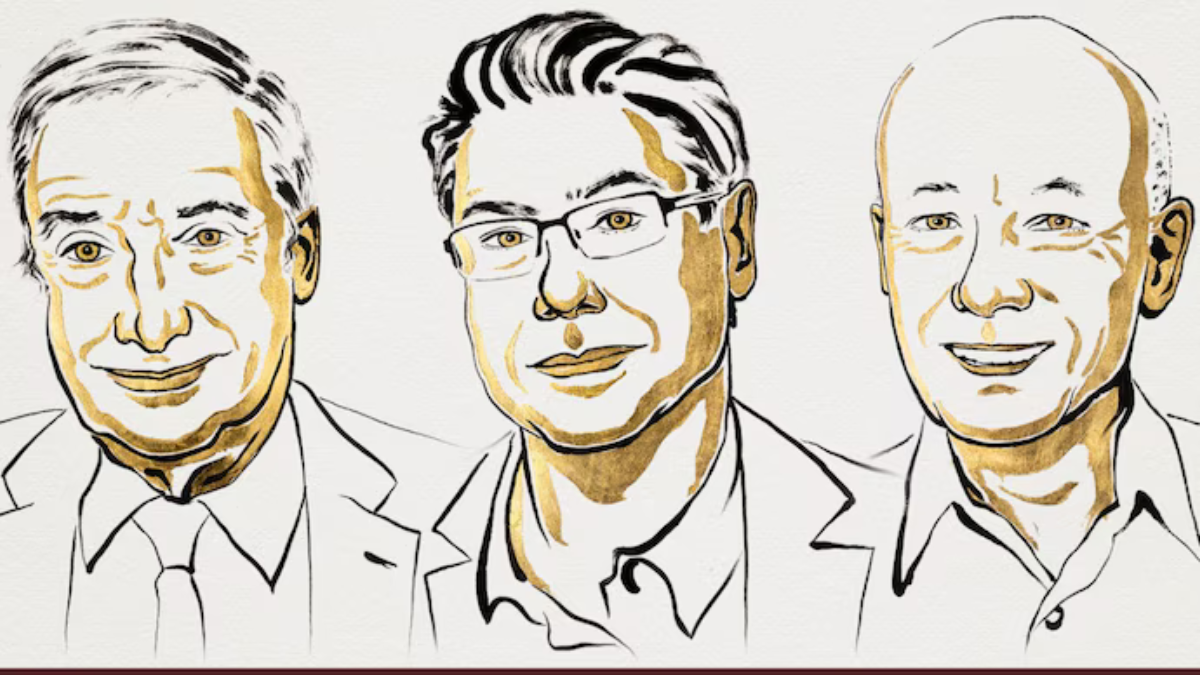The Nobel Prize in Economic Sciences for 2025 has been awarded to Joel Mokyr, Philippe Aghion, and Peter Howitt for their groundbreaking contributions to understanding innovation-driven economic growth. Their research explains how technological advancements and creative destruction have helped move economies from stagnation to sustained prosperity.
Nobel Prize in Economics 2025
The Nobel Prize in Economics 2025 recognizes groundbreaking research that changed how the world understands long-term economic growth. Mokyr, Aghion, and Howitt were honoured for showing that consistent, innovation-driven development is not automatic; most of human history saw economic stagnation, and only the last two centuries have brought sustained progress due to persistent technological advancements and creative destruction.
Economic Science Nobel Laureate 2025 Combined Impact
The laureates’ research has changed how economists and policymakers understand long-term growth. Their findings show:
- Economic growth depends not just on accumulating capital, but on continual improvements in technology.
- Societies that promote openness to new ideas and protect innovation are more likely to achieve and maintain prosperity.
- There is a complex balance between the benefits and social costs of rapid innovation, and policies should support knowledge, learning, and fair competition.
Joel Mokyr (50% Prize Share)

Economic historian at Northwestern University, USA.
Uses historical research to show how societies moved from low growth to continuous, self-sustaining economic progress.
Highlights that persistent innovation happens in cultures that encourage knowledge, openness to new ideas, and scientific understanding.
Emphasized that not only inventions, but also explaining how and why they work, leads to future innovations (example: Industrial Revolution).
Philippe Aghion & Peter Howitt (25% + 25% Share)

Philippe Aghion is a professor at Collège de France, INSEAD, and LSE; Peter Howitt is at Brown University, USA.
They developed the influential theory of “creative destruction”.
Their 1992 work formalized how innovation-driven growth happens when new technologies and firms replace old ones.
This process creates both opportunity (new jobs, products) and disruption (job losses, firm failures).
Competition and innovation keep the cycle of growth alive, but also generate social and economic challenges that need careful management.

The Nobel Committee’s Message
The Nobel Committee emphasized that economic growth should never be taken for granted and highlighted the importance of nurturing the mechanisms of innovation and creative destruction. Their message honours:
- Joel Mokyr: “for having identified the prerequisites for sustained growth through technological progress”
- Philippe Aghion: “for the theory of sustained growth through creative destruction”
- Peter Howitt: “for the theory of sustained growth through creative destruction”
Previous Economic Science Nobel Laureates
2024: Daron Acemoglu, Simon Johnson & James A. Robinson (USA)
“for studies of how institutions are formed and affect prosperity”
2023: Claudia Goldin (USA)
“for having advanced our understanding of women’s labour market outcomes”
2022: Ben S. Bernanke, Douglas W. Diamond & Philip H. Dybvig (USA)
“for research on banks and financial crises”
| Related Posts | |
| Nobel Peace Prize 2025 |
|
| Nobel Prize in Chemistry 2025 | Hungarian author László Krasznahorkai wins Nobel Prize in Literature 2025 |




 Got SBI Clerk Provisional Selection? Her...
Got SBI Clerk Provisional Selection? Her...
 IBPS Clerk Mains Result 2025-26 Out at i...
IBPS Clerk Mains Result 2025-26 Out at i...
 From Civil Engineer to Banker: Saurav Ni...
From Civil Engineer to Banker: Saurav Ni...








